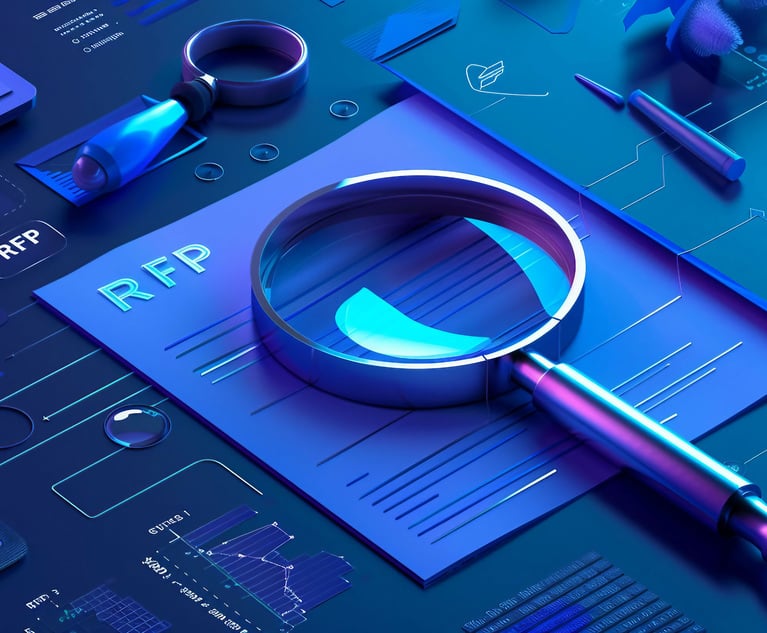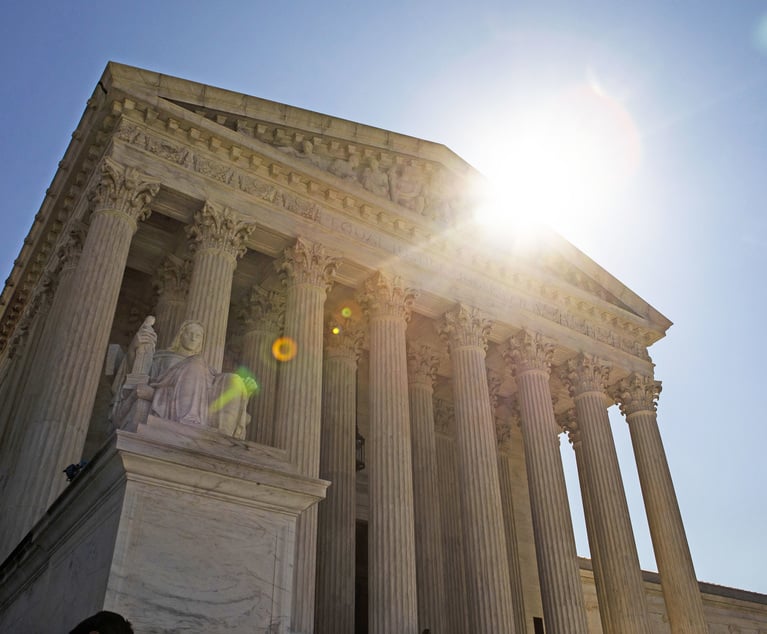Features

Is Your Law Firm's Data Ready for AI?
As artificial intelligence continues its rapid march through the legal industry, law firms are facing a new kind of strategic imperative. No longer is the question whether to use AI — but rather how to do so responsibly, effectively, and competitively.
Columns & Departments

Real Property Law
Easement By Prescription Claim Upheld; Easement By Necessity Claim DismissedEasement By Necessity to Obtain Access to Crawl SpaceImplied Easement Based on Pre-Existing UseConstructive Trust Over Half Interest In PropertyAdverse Possession of Beachfront Land
Features

Third Circuit Sides With Magistrates On Bankruptcy Appeals
The Circuit split caused by MTE can and should be fixed by the Fifth and Seventh Circuits when the appropriate appeal reaches them. MTE reflects the more current analysis. It is unlikely that the Supreme Court will be able to resolve the split any time soon.
Features

Ninth Circuit Revives CoStar Competitor’s Antitrust Counterclaims
The U.S. Court of Appeals for the Ninth Circuit on June 23 revived a competitor’s antitrust counterclaims against rival real estate data provider CoStar Group Inc.
Features

The Suspension Bridge Effect: Why Trademark Attorneys Must Protect Entire Brand Systems, Not Just Individual Marks
In brand protection, as in bridge engineering, the strength of brand differentiation (trademark distinctiveness) depends on the integrity of each supporting cable. When one snaps, the question is not only whether you can fix that component, but also whether the whole structure will hold together long enough for the repair crew to arrive.
Features

Service Provider Management, Not Selection, Determines Success
Many law firms are fixated on insuring they choose the right service provider. Granted the right partner is important, however it’s not the service provider you select; it’s how that service provider is managed that determines success.
Features

Leveraging Patent Office Examples for AI Enabled Innovation In Any Industry
In Ex parte Michalek, the PTAB evaluated an invention involving medical health technology and artificial intelligence. While this case involved medical health technology, the implicated issues inform patent strategies for AI enabled inventions across all industries.
Features

High Court Expands the Reach of the Wire Fraud Statute (Part III)
On May 22, 2025, the Supreme Court endorsed the “fraudulent inducement” theory of wire fraud in Kousisis v. United States, departing from its recent trend of narrowing the scope of broadly worded criminal statutes, including the wire fraud statute. This decision appears to allow the government to obtain a conviction even where the defendant did not intend to cause economic harm to their counterparty, so long as the defendant made material false statements in order to obtain property from another.
Features

PA Supreme Court Shifts How Courts Assess Impact of Takings In Eminent Domain Cases
In a decision that could reshape how property rights are valued in Pennsylvania, the Pennsylvania Supreme Court ruled that property owners may receive just compensation for noncontiguous parcels taken by the government — so long as those parcels were functionally unified.
Features

The Divestiture Rule Explained: A Judge-Made Doctrine Doesn’t Necessarily Deprive a Lower Court of Ongoing Subject Matter Jurisdiction
The “divestiture rule is not truly jurisdictional,” a Florida Bankruptcy court held in the recent ECI Pharmaceuticals case, which shows how one court analyzed when or when not to apply the divestiture rule.
Need Help?
- Prefer an IP authenticated environment? Request a transition or call 800-756-8993.
- Need other assistance? email Customer Service or call 1-877-256-2472.
MOST POPULAR STORIES
- Use of Deferred Prosecution Agreements In White Collar InvestigationsThis article discusses the practical and policy reasons for the use of DPAs and NPAs in white-collar criminal investigations, and considers the NDAA's new reporting provision and its relationship with other efforts to enhance transparency in DOJ decision-making.Read More ›
- Challenges In Being a Pro Sports General CounselBeing a general counsel for a professional sports team is a coveted gig, but it's also a job with unique challenges, potential ethical minefields and scandals lurking around the front office, field, stadium and elsewhere.Read More ›
- The DOJ's Corporate Enforcement Policy: One Year LaterThe DOJ's Criminal Division issued three declinations since the issuance of the revised CEP a year ago. Review of these cases gives insight into DOJ's implementation of the new policy in practice.Read More ›
- The DOJ's New Parameters for Evaluating Corporate Compliance ProgramsThe parameters set forth in the DOJ's memorandum have implications not only for the government's evaluation of compliance programs in the context of criminal charging decisions, but also for how defense counsel structure their conference-room advocacy seeking declinations or lesser sanctions in both criminal and civil investigations.Read More ›
- Practice Tip: The Earning Capacity of Business OwnersThe owner of a business can claim as lost earning capacity in a personal-injury action only the working time lost due to injuries and harm to future earning capacity, not the business' alleged profits in perpetuity.Read More ›
